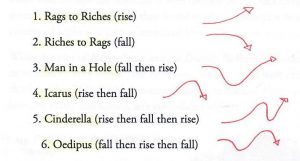Feed the good wolf…
Top of my list of recommended reads from 2020 is Rutger Bregman’s Humankind, his essentially positive and timely take on our species. A chunky science-heavy tome that has the classic page-turning qualities of a great novel, Humankind questions and debunks the Hobbesian damning of people as brutish folk only prevented from descending into violence and mayhem by a wafer-thin veneer of imposed civilisation. Rutger’s view of us is more akin to Rousseau’s noble savage. But he neither romanticises nor idealises our state. As he says upfront, “To be clear: this book is not a sermon on the fundamental goodness of people. Obviously, we are not angels. We’re complex creatures, with a good side and a not-so-good side. The question is which side to turn to…
Floating around the Internet is a parable of unknown origin. It contains what I believe is a simple but profound truth:
An old man says to his grandson: ‘There’s a fight going on inside me. It’s a terrible fight between two wolves. One is evil – angry, greedy, jealous, arrogant, and cowardly. The other is good – peaceful, loving, modest, generous, honest, and trustworthy. These two wolves are also fighting within you, and inside every other person too.’
After a moment, the boy asks, ‘Which wolf will win?’
The old man smiles.
‘The one you feed.'”
As the old man says, we should feed the good wolf. But what do we feed it? Rutger gives us the answer further on in Humankind: “As media scientist George Gerbner summed up: ‘[whoever] tells the stories of a culture really governs human behaviour.'” Stories it is, then. But not any old stories. They must be good ones, in every sense of that word.
So as we head into a new year following a year like no other, let’s all look to feed our good wolves with a rich diet of positively good stories.

